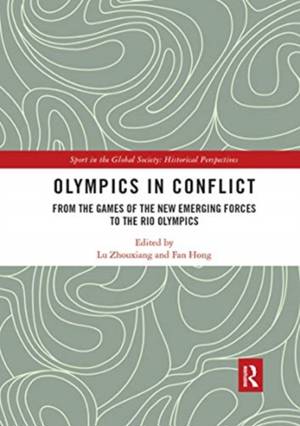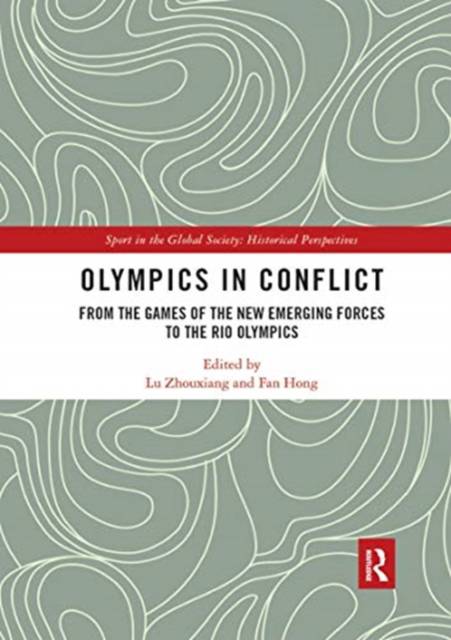
- Afhalen na 1 uur in een winkel met voorraad
- Gratis thuislevering in België vanaf € 30
- Ruim aanbod met 7 miljoen producten
- Afhalen na 1 uur in een winkel met voorraad
- Gratis thuislevering in België vanaf € 30
- Ruim aanbod met 7 miljoen producten
Olympics in Conflict
From the Games of the New Emerging Forces to the Rio Olympics
Omschrijving
In the second half of the twentieth century, the Olympics played an important role in the politics of the Cold War and was part of the conflicts between the Capitalist Block, the Socialist Block and Third World countries. The Games of the New Emerging Forces (GANEFO) is one of the best examples of the politicization of sport and the Olympics in the Cold War era. From the 1980s onward, the Olympics has facilitated communication and cooperation between nations in the post-Cold War era and contributed to the formation of a new world order. In August 2016, the Games of the XXXI Olympiad were held in Rio de Janeiro, making Brazil the first South American country to host the Summer Olympics. This was widely regarded as a new landmark event in the history of the modern Olympic movement. From the GANEFO to Rio, the Olympic Games have witnessed the shifting balance in international politics and world economy. This book aims at understanding the transformation of the Olympics over the past decades and tries to explain how the Olympic movement played its part in world politics, the world economy and international relations against the background of the rise of developing countries. The chapters in this book were published as a special issue in The International Journal of the History of Sport.
Specificaties
Betrokkenen
- Uitgeverij:
Inhoud
- Aantal bladzijden:
- 170
- Taal:
- Engels
- Reeks:
Eigenschappen
- Productcode (EAN):
- 9780367593087
- Verschijningsdatum:
- 14/08/2020
- Uitvoering:
- Paperback
- Formaat:
- Trade paperback (VS)
- Afmetingen:
- 170 mm x 241 mm
- Gewicht:
- 276 g

Alleen bij Standaard Boekhandel
Beoordelingen
We publiceren alleen reviews die voldoen aan de voorwaarden voor reviews. Bekijk onze voorwaarden voor reviews.










